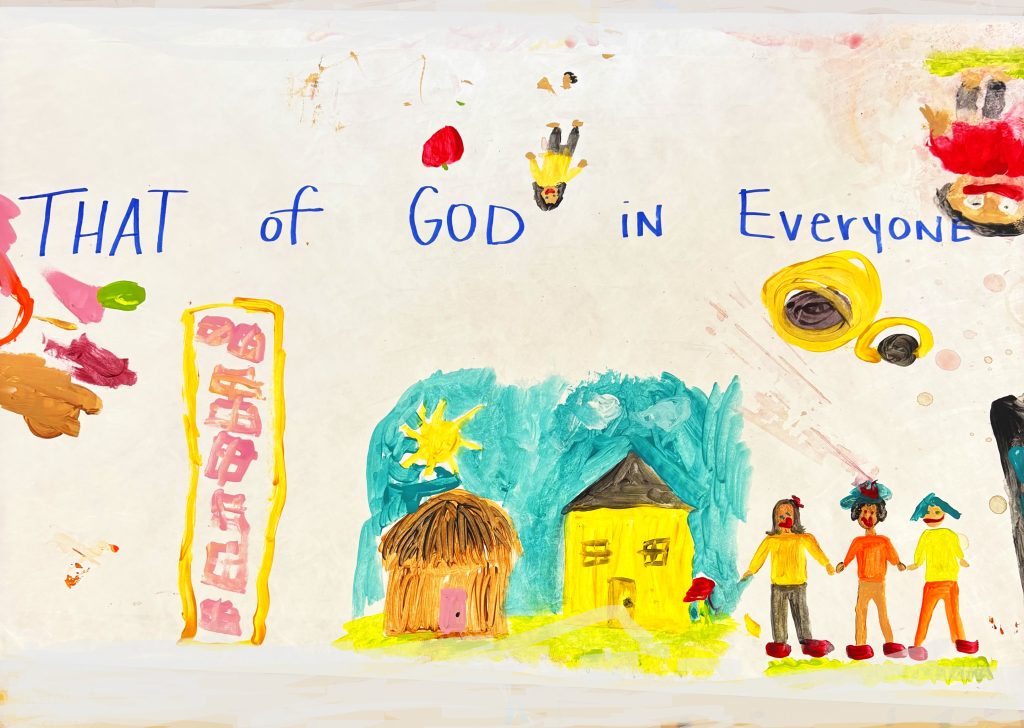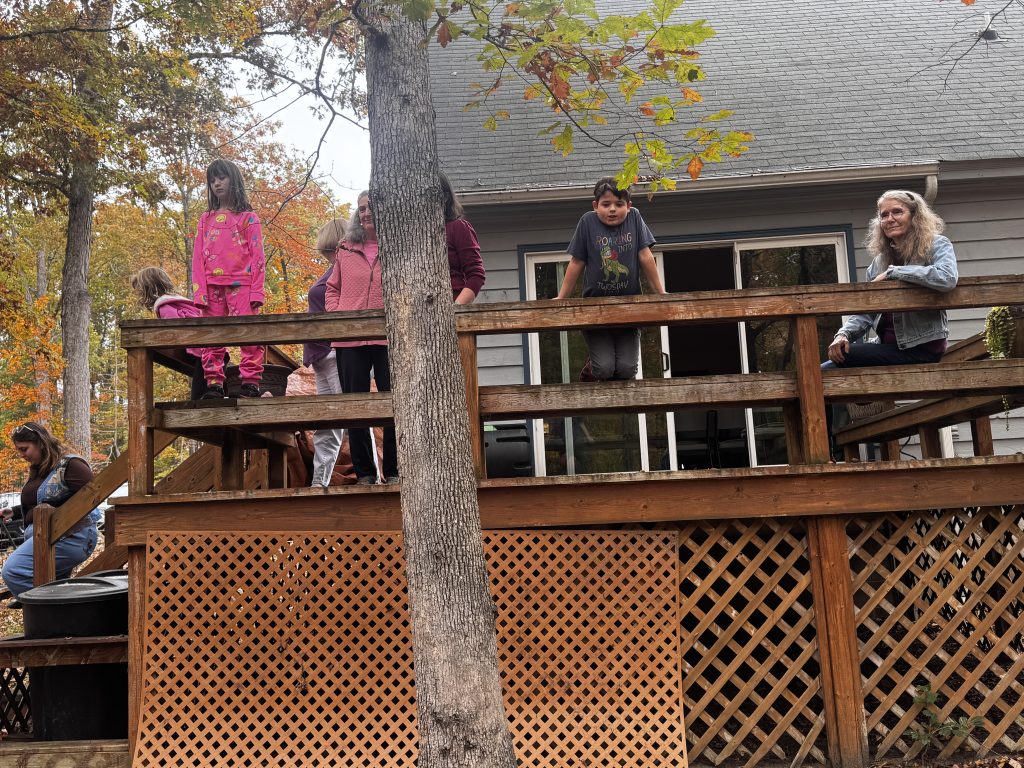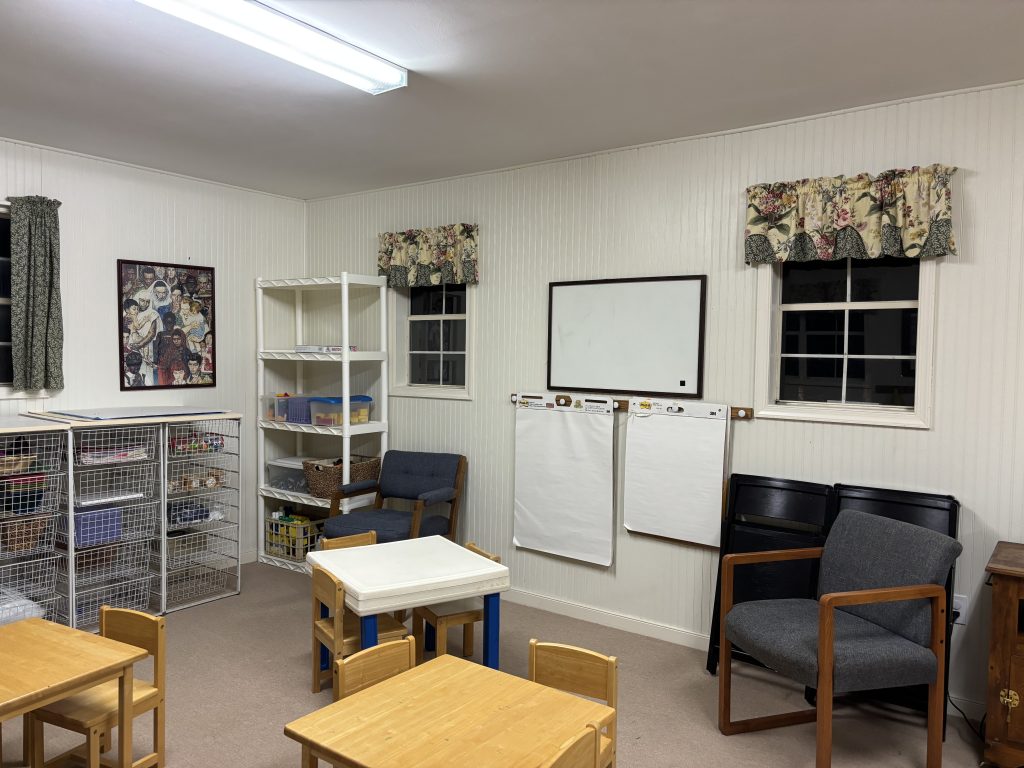An Invitation to You and Your Family
We invite you to consider if the spirituality of Quakers is right for your lifestyle and the core spiritual values you wish to impart to your children.
First, A little Background
“Quakers” and the name “Friends” are interchangeable. They both refer to the same spiritual tradition. Midlothian Friends Meeting surrounds its worship with a ‘waiting silence’. This simplified worship style requires no pastor or worship leader. Worshipers simply sit together in silence and in the quiet “listen within” to the ‘inner Light’. This quiet is occasionally broken whenever any worshiper is moved by the Spirit to offer a brief message for all to contemplate. In an attempt to reform the churches of the day, Quakers first practiced this form of worship in England in the mid-1600’s. They were influenced by the silence Jesus surrounded himself with during his personal worship.
Historically, Quakers call their spiritual communities “meetings” in order to reinforce the concept that the church is not a building or even a local group of people who worship together. Rather, the church is the worldwide spiritual community, composed of persons from many denominations. Rather than calling their building a “church”, Quakers call it a “meetinghouse”.
Midlothian Friends Meeting is part of a Quaker tradition that began with the very earliest Quakers in the mid-1600’s. They considered these three characteristics essential in the experience of their faith: Spiritual freedom, egalitarianism, and a mystical relationship with the divine Spirit. Due to experiencing these three characteristics in their daily lives Quakers became known for their efforts to advance equality, peace, social justice, and care for the Earth. Throughout their history they have been active in the abolition of slavery, advocacy for women’s equal rights, and the promotion of peace instead of resorting to war. Since the start of the twentieth century Quakers have advocated for nonviolent conflict resolution, restorative justice, respect for the Earth, and an end to all forms of discrimination.
Our local Quaker community strives to be known for its compassionate outreach to others, and to being welcoming, affirming, and friendly to all. People who associate with our Quaker meeting are encouraged to be who they are, as they listen to the ‘inner Light’. This includes children.
A Quaker View of Children and Parenting
Historically, Quakers have always viewed children with the same respect given to adults. Rather than considering them parental “possessions”, Quaker parents have regarded their children as beloved offspring given to them to nurture and support until they reach adulthood. Parenting methods that use positive encouragement and natural/logical consequences instead of spanking have routinely been used by Quaker parents with great success since the religion first began in the mid-1600’s.

Within our Midlothian Quaker community, this same culture of respect permeates all interactions with our youth. We cherish the young ones among us.
Sunday School at Midlothian Friends Meeting
Our Sunday School (what Quakers call, First Day School) is held during the 11:00 a.m. worship hour on the second and fourth Sundays of each month. On the other Sundays of the month, children are always invited to worship with their parents (as described above), accompanied by a quiet toy or book if they desire.
Traditionally, we have preferred a non-doctrinal approach during First Day School that is experiential, concentrating on:
- Historical Quaker values: authenticity, peaceful living, personal integrity, serving and cultivating the community, treating all with equality, and Earth stewardship
- The fruits of the Spirit: love, joy, peace, patience, kindness, goodness, faithfulness, gentleness, and moderation
- The value of silence towards living a Spirit-led life
Our goal is to create a robust First Day School experience that includes:
- Consistency for children (and their parents) in knowing who their Sunday School teacher will be each time
- Sharing and listening to each other, some music and singing, community service, and fun activities
- Providing a flexible approach depending on the age group and number of children present on any given Sunday
- Incorporating the beautiful Certified Wildlife Habitat surrounding our meetinghouse


